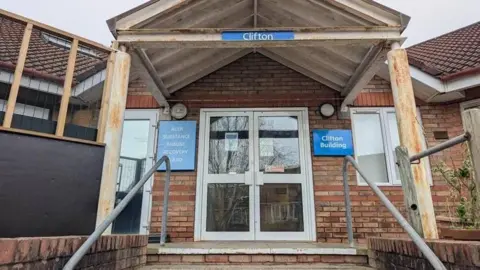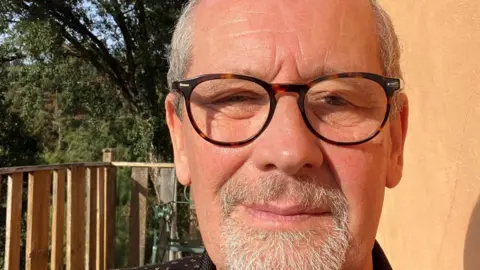NHS in-patient addiction unit set to close
 BBC
BBCThe only NHS-run inpatient drug and alcohol unit in the west is to close despite a campaign to save it.
The Acer Unit, based in the grounds of Southmead Hospital in Bristol, will close its doors at the end of June this year.
Avon and Wiltshire NHS Mental Health Partnership (AWMHP), which runs the unit, said a fall in patient numbers due to a shift to community-based treatment meant it was no longer financially viable.
The AWMHP board made the decision to close the unit on Wednesday, noting only 45% of its beds are in regular use.
The meeting heard the trust has so far financed a £1.3m budget shortfall, but that this sum is due to reach £1.7m in the next financial year.
The unit was initially due to close at the end of March, but this was delayed following a campaign by a the Save the Acer group.
In an online petition, it described the Acer as "a vital cog in the wheel of recovery from addiction".
The group raised concerns that there are currently no plans to open an equivalent in-patient unit in the region.
'No impact on patients'
In 2024, Bristol City Council had re-tendered its community drug and alcohol service and national provider Turning Point was awarded the contract.
Turning Point has now launched its "Horizons" programme in partnership with several local organisations to offer services including assessment, interventions, drug prescription and recovery support.
It will also offer alternative routes to accessing inpatient detox services when necessary.
In a statement, AWMHP said: "There will be no impact on current patients who are all scheduled to complete their treatment prior to the unit closing.
"We are also working closely with Turning Point as part of Horizons, the new community drug and alcohol services provider in Bristol from April 1, to continue supporting a safe transfer of those services."
 Handout
HandoutSteve Rice, founder of the Save the Acer campaign, struggled with heroine addiction for 20 years, and has now been in recovery for 34 years.
He was sceptical about the efficacy of community-based treatments, adding that in his experience they were rarely successful for long-term addicts.
He told the BBC he feared for people aged in their 50s and 60s, often facing multiple health conditions, who will not be able to pay for private treatment.
"If you've got money you can get a detox but the people who go to the Acer, they are the little coins at the funfair machine that pushes coins backwards and forwards," he said.
"They are the people right at the edge. Their next stop is to fall off. These are the people that get treated in NHS detoxes."
A spokesperson for Bristol City Council said: "We are grateful to AWP for the provision of this service to date and thank staff at the Acer Unit for their passion and commitment.
"Bristol's new Horizons Drug and Alcohol service are working closely with the Acer Unit to ensure safe closure of the service."
Justin Hoggans, regional head of operations for the Horizons programme, said they were sad to hear of the decision to close the Acer Ward but wanted to "offer reassurance that inpatient detox will still be available to those who need it".
"We have access to several different inpatient detox facilities and people in need of detox will be able to work with us to choose the option that best meets their particular needs from a number of residential and community-based options," he said.
Follow BBC Bristol on Facebook, X and Instagram. Send your story ideas to us on email or via WhatsApp on 0800 313 4630.
